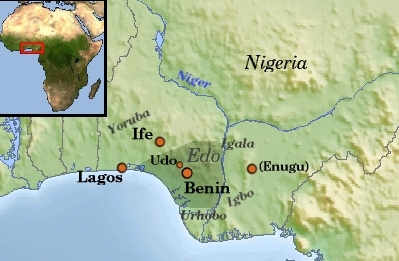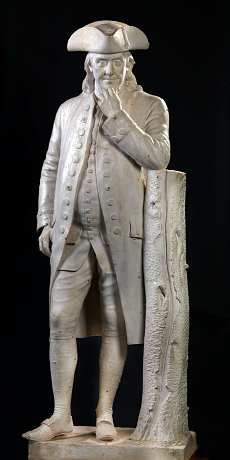|
Orisha (other)
Orishas (singular: orisha) are divine spirits that play a key role in the Yoruba religion of West Africa and several African diaspora religions, religions of the African diaspora that derive from it, such as Haitian Vaudou, Cuban, Dominican and Puerto Rican Santería and Brazilian Candomblé. The preferred spelling varies depending on the language in question: òrìṣà is the spelling in the Yoruba language, orixá in Portuguese language, Portuguese, and orisha, oricha, orichá or orixá in Hispanophone, Spanish-speaking countries. According to the teachings of these religions, the orishas are spirits sent by the supreme creator, Olodumare, to assist humanity and to teach them to be successful on ''Ayé'' (Earth). Rooted in the Yoruba religion, native religion of the Yoruba people, most orishas are said to have previously existed in òrún—the spirit world—and then became Irúnmọlẹ̀—spirits or divine beings incarnated as human on Earth. Irunmole took upon a human id ... [...More Info...] [...Related Items...] OR: [Wikipedia] [Google] [Baidu] |
Yoruba Religion
The Yoruba religion (Yoruba: Ìṣẹ̀ṣe), or Isese, comprises the traditional religious and spiritual concepts and practice of the Yoruba people. Its homeland is in present-day Southwestern Nigeria, which comprises the majority of Oyo, Ogun, Osun, Ondo, Ekiti, Kwara and Lagos States, as well as parts of Kogi state and the adjoining parts of Benin and Togo, commonly known as Yoruba land. It shares some parallels with the Vodun practiced by the neighboring Fon and Ewe peoples to the west and to the religion of the Edo people and Igala people to the east. Yoruba religion is the basis for a number of religions in the New World, notably Santería, Umbanda, Trinidad Orisha, and Candomblé. Yoruba religious beliefs are part of Itàn (history), the total complex of songs, histories, stories, and other cultural concepts which make up the Yoruba society. Term The Yoruba name for the Yoruba indigenous religion is Ìṣẹ̀ṣẹ, which also refers to the traditions ... [...More Info...] [...Related Items...] OR: [Wikipedia] [Google] [Baidu] |
Bini People
The Edo or Benin people are an Edoid ethnic group primarily found in Edo State, Southern part of Nigeria. They speak the Edo language and are the descendants of the founders of the Benin Empire. They are closely related to other ethnic groups that speak Edoid languages, such as the Esan, the Afemai, the Isoko, and the Urhobo. The name "Benin" (and "Bini") is a Portuguese corruption, ultimately from the word "Ubini", which came into use during the reign of Oba (ruler) Ewuare the Great, c. 1440. "Ubini", a word meaning Vexation, used by Prince Oranmiyan, son of the wealthy ruler of Uhe (Ife) to describe the frustration he encountered after he was invited to rule benin. ''Ubini'' was later corrupted to ''Bini'' by the mixed ethnicities living together at the centre; and further corrupted to ''Benin'' around 1485 when the Portuguese began trade relations with Oba Ewuare giving them coral beads. History Administrative region Edo people can be found in Nigeria's Edo ... [...More Info...] [...Related Items...] OR: [Wikipedia] [Google] [Baidu] |
Energy
In physics, energy (from Ancient Greek: ἐνέργεια, ''enérgeia'', “activity”) is the quantitative property that is transferred to a body or to a physical system, recognizable in the performance of work and in the form of heat and light. Energy is a conserved quantity—the law of conservation of energy states that energy can be converted in form, but not created or destroyed. The unit of measurement for energy in the International System of Units (SI) is the joule (J). Common forms of energy include the kinetic energy of a moving object, the potential energy stored by an object (for instance due to its position in a field), the elastic energy stored in a solid object, chemical energy associated with chemical reactions, the radiant energy carried by electromagnetic radiation, and the internal energy contained within a thermodynamic system. All living organisms constantly take in and release energy. Due to mass–energy equivalence, any object that h ... [...More Info...] [...Related Items...] OR: [Wikipedia] [Google] [Baidu] |
Peace
Peace is a concept of societal friendship and harmony in the absence of hostility and violence. In a social sense, peace is commonly used to mean a lack of conflict (such as war) and freedom from fear of violence between individuals or groups. Throughout history, leaders have used peacemaking and diplomacy to establish a type of behavioral restraint that has resulted in the establishment of regional peace or economic growth through various forms of agreements or peace treaties. Such behavioral restraint has often resulted in the reduced conflict, greater economic interactivity, and consequently substantial prosperity. "Psychological peace" (such as peaceful thinking and emotions) is perhaps less well defined, yet often a necessary precursor to establishing "behavioural peace." Peaceful behaviour sometimes results from a "peaceful inner disposition." Some have expressed the belief that peace can be initiated with a certain quality of inner tranquility that does not depend upo ... [...More Info...] [...Related Items...] OR: [Wikipedia] [Google] [Baidu] |
Moral Character
Moral character or character (derived from charaktêr) is an analysis of an individual's steady moral qualities. The concept of ''character'' can express a variety of attributes, including the presence or lack of virtues such as empathy, courage, fortitude, honesty, and loyalty, or of good behaviors or habits; these attributes are also a part of one's soft skills. Moral character primarily refers to the collection of qualities that differentiate one individual from anotheralthough on a cultural level, the group of moral behaviors to which a social group adheres can be said to unite and define it culturally as distinct from others. Psychologist Lawrence Pervin defines moral character as "a disposition to express behavior in consistent patterns of functions across a range of situations". Same as, the philosopher Marie I. George refers to moral character as the "sum of one’s moral habits and dispositions". Aristotle has said, "we must take as a sign of states of character the ... [...More Info...] [...Related Items...] OR: [Wikipedia] [Google] [Baidu] |
Prayers Prayer is an invocation or act that seeks to activate a rapport with an object of worship through deliberate communication. In the narrow sense, the term refers to an act of supplica |



.jpg)

